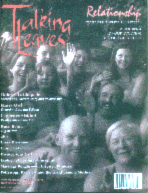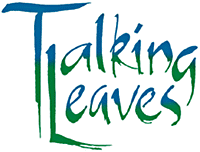

I asked Bill Graham Presents for press tickets to the July 19 Indigo Girls concert at Eugene's Cuthbert Amphitheatre, and was gratified to find two tickets awaiting me at Will Call. The outdoor venue, nestled amongst the fields, woods, and waterways of Alton Baker Park, is probably Eugene's best. I experienced most of the concert from the dance floor, perhaps thirty feet from Amy Ray, Emily Saliers, and their band.
I enjoyed much of the music--some early well-known songs stood out--but the more recent, alienated rock numbers left me unenthused. Most of all, I realized how much I like the music and musicians I do like, and that fame or commercial success are not necessarily directly correlated with talent or freshness of material. Discussing the concert afterwards, a friend and I agreed that two folk musicians who made their names here in Eugene are, in our estimation, more talented than the Indigo Girls, and yet likely will never be as well-known. (Playing alone, together, and with the band Babes With Axes, Laura Kemp--still local--and Katie Henry--who now visits periodically from her new home in Vermont--have been leaving marks on Eugene's musical scene for nearly a decade. They will likely never command a $28 ticket price, but I'd choose their music over the Indigo Girls' any day.)
It was a good concert, a good time, a great crowd, with groups of young women supplying a taste of the Indigo Girls' equivalent to Beatlemania by swooning and screaming every time Amy Ray smiled.
How can I possibly twist a review of an Indigo Girls concert into an article about relationship? Why would I want to? To satisfy some feeling of obligation because I suggested I might do such a thing in my fax requesting the free press tickets from Bill Graham? Does Bill Graham even remember, all these months later? Will he even read this magazine when I send it to him?* Do I sometimes ask too many questions, or digress too much?
The terrible truth is that I did not like the Indigo Girls concert as much as I liked the Bob Dylan concert that led to "An Ecological Future: How Does It Feel," a loosely-woven stream-of-consciousness article in the Winter 1999 issue which, despite its un-Mr. Jones-like nature, received lots of positive reader feedback and was partly responsible for my getting into a romantic relationship with a reader. But I digress again--or do I? The question immediately occurs to me--as it might to anyone reading this--was there an unfair power dynamic at play between me and that reader, simply because I was able to present myself in a certain way through this medium? What is the relationship between a writer and a reader? How is it similar to or different from that between performer and audience--between Amy Ray and her young female fans? Did it make a difference that in this case the reader was also a writer in her own right...or in her own write? Speaking of which, can anyone who has ever read it forget John Lennon in His Own Write, a classic which should be on every bookshelf? But even John Lennon tired of fame, of trying to meet his deep-seated personal needs through some public acting-out, of being cute and clever to get attention from others to fill that hole left by childhood traumas, including the absence and then death of his mother, killed by an automobile as she crossed the street when he was just seven (yet another reason to "divorce your car"). Plastic Ono Band, John's "primal masterpiece" recorded twenty years after that event, was inevitable.
This time I will get it right.
My first real exposure to the Indigo Girls came nine years ago, as I traveled to the Bread and Puppet Domestic Resurrection Circus in northeast Vermont with two of the very few alternatively-minded people I had met in several months of living in New Hampshire. To all outward appearances, they were the perfect couple. Together, they ran a solar energy business, homesteaded, raised a family, organized the local progressive, "organic" community.
Behind the scenes, I quickly discovered, they were at each other's throats constantly. As he drove their remodeled schoolbus--with her, their two children, and me as passengers--I began to witness their relationship in all its dysfunctional glory.
They seemed to argue every time they talked to each other. When I was alone with either of them, each would try to win me to his or her side. I learned from him that she refused to sleep with him; I learned from her that he was impossible to be with and work with.
She loved the Indigo Girls, and put one of their albums into the tape deck as we approached the Circus. Her musical selection was evidently for her pleasure and my benefit, not his. She seemed to take an unusual interest in me--was certainly a lot nicer to me than she was to him. In fact, she seemed to be infuriating him with her flirtatiousness--which, however, he never objected to directly, and which at the time I felt powerless to stop. Instead, he stewed, and came forward with occasional angry outbursts directed at her.
Seeking to fit into the expectations of the "exclusive relationship" model, their marriage floundered and failed--ending, I heard later, in a difficult separation and finally in divorce.
"You are my everything, and I am yours; we're all either of us needs" had become "Why aren't you my everything? You have failed me in all of these ways...you are causing me all of this pain...and here it is back at you..."
Perhaps those lyrics coming from the tape deck were pointing a direction they each needed to take. "The less I seek my source in some definitive, the closer I am to fine."
Those two people were not fine, and they blamed each other for it. In the supermarket of happiness, they were looking for "refunds" on their defective spouse. What they didn't understand was that an all-purpose consumer item, although advertised as doing just about everything imaginable, is usually not very good at a large number of those tasks. "It drills, but it doesn't mix the bread dough." Instead of a "refund" on each other, they seemed to deserve a refund on the idea that their all-purpose marriage could ever meet the giddy expectations that society had placed on it.
Back then, I too occasionally had the idea that perhaps someone out there could be my "all." But I was already getting the sense, which developed more clearly over the years, that we are each rightfully married more strongly to life itself, to the land we live on, to the communities we are part of, to our place in the entire fabric, to our own unique selves and to our participation in the whole, than to any one individual. It takes a village to raise not only a child, but an adult, a parent, a partner, a fulfilled human being.
Now, nine years later, as I saw those same Indigo Girls for the first time in person, I couldn't help but reflect on my circumstances. I had given my other free concert pass to a friend, and helped another to get in for cheap. I actually loved a lot of people in my life, including these two friends, and many more--and was very thankful not to feel entirely beholden to a "spouse." My memory of that New Hampshire couple reminded me of the direction I'm glad my life didn't take. Instead, valuing community and a network of friends, I had been able to do what I wanted with my life. I had been able to put attention on my relationship with the land--which had in fact been primary, determining many of my choices over the years. When I seemed to be looking for "someone to make it all better," I had learned that I mostly needed to get back into connection with the web of creation--I didn't necessarily need someone to go crying to. A walk in the woods or a morning in the garden could cheer me up more than any one person could. Looking inside, and writing a letter or article, or acting on any inspiration I felt flowing through me, could bring me a sense of wholeness I could never find outside of myself if I didn't have it within. And without an attachment to finding one person with whom to share my life completely, I had been able to form many connections with many people, whom I loved much more fully than I can imagine loving anyone if I'd had to trade in all my other friends for them.
Bill Graham, are you there?* Next time, I have some suggestions: don't allow the Indigo Girls to change their instruments between every song. It didn't improve the music: it just seemed to make the statement, "We are superstars," faded jeans notwithstanding. And those security people looked a little too intent on keeping the enthusiastic crowd at bay. Those men didn't even move to the music.
And to the Indigo Girls: I like that "hammer and a nail" song. Write more like that one! (if you're inspired to)...
And thanks for the tickets!
I promise this is my last attempt.
I can sum up my Cuthbert experience by saying: the Indigo Girls are inspiring performers, with some really good songs. If they come to your town, certainly make an effort to see them. But, based on other recent concerts I've attended, be sure to see Michelle Shocked, Rebecca Riots, or Babes With Axes. And check out any book by John Lennon. Or better yet, start a garden or go for a walk in the woods. However, I digress.
Chris Roth edits Talking Leaves, a task which, along with gardening, living in community, and enjoying the outdoors and indoors, keeps him constantly aware of the webs of relationship that seem to connect everyone and everything. This leads him to frequent digression.
*Ed. note: I was informed at press time that Bill Graham is deceased, and has been for a while. No disrespect is intended. Even so, there's more than one answer to these questions.
�2000* Talking Leaves
Winter 2001
Volume 10, Number 3
Relationship
We welcome your letters!
For a sample copy of the Winter 2001 issue, "Relationship," send $6 to
